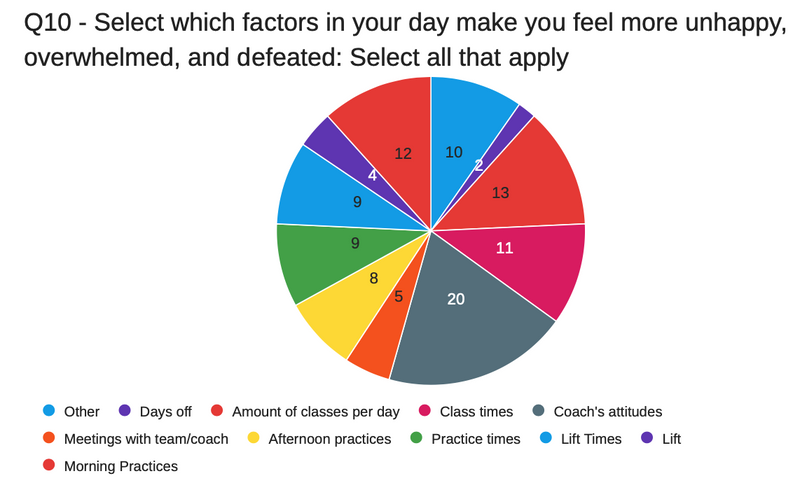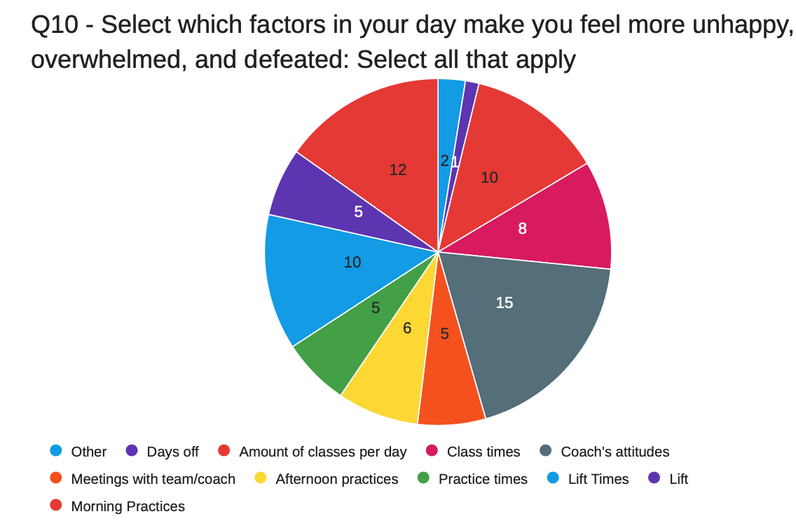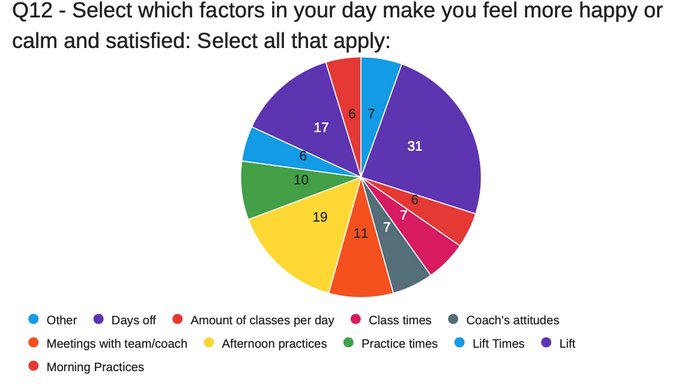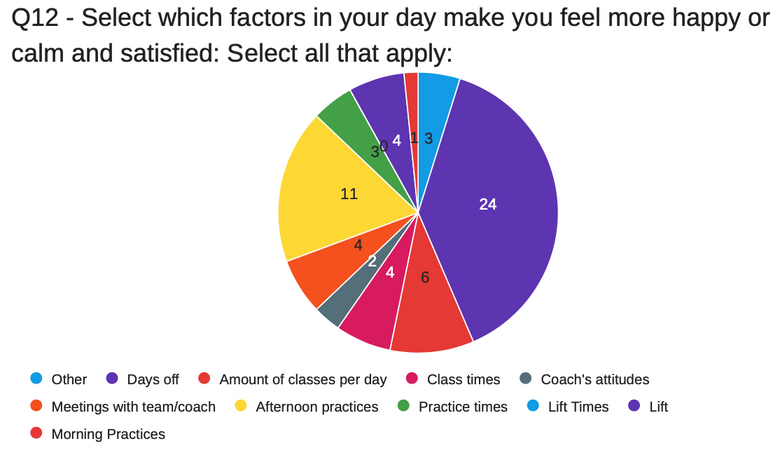Female Student Athlete Mental Health:
A presentation on the effects of being an in-season DIII Female athlete and the factors behind their mental wellbeing
Emma Dickson

Capstone Presentation
Original Abstract
I hope to examine four women’s sports teams at UMW throughout their seasons and gauge their mental health. This will be impersonal enough that each person feels comfortable responding honestly. Research will take place in the course of three surveys. One survey will gauge current mental health before the season and ask about grades, season expectations, and personal thoughts on mental health. The second survey will take place around the halfway mark of the seasons and will evaluate any changes. It will look at this in terms of classes, workload, injury, lifting, practice, and games to see which factors help or hurt mental health. Finally, a survey will be sent out within the last weeks of the semester in order to ask similar questions as before, along with questions about whether athletes feel like their mental states have improved or declined and which factors contributed to this.
Introduction
Challenges
Changes made to data
- Getting in touch with the agreed coaches to actually send out each individual survey
- Gaining full participation from sports teams
- Timing of seasons and cancellations moving midway and starting points affected survey frequency
- Convincing coaches to send out survey/respond to my communications
1. Survey Number-
Only 2 surveys were sent out for data to be collected. Seasons run past the end of the semester anyway, but long response times hindered collection.
2. Collection methods-
Requests to fill out surveys had to be sent to players instead of coaches because of non-response issues. Coaches never shared with players as promised, so players who were willing assisted in distribution.
Introduction
In addition to surveys, I have examined online sources to assist with understanding of this topic on a wider scale than UMW. The main factors for utilizing these sources include:
These sources highlight important factors behind athlete mental health. These factors include injury, coach relationships, and the help provided by institutions.
These factors are some of the most influential and important in terms of athlete mental health on a wide scale.
Methodology
Surveys
Research
Two Surveys were sent out to the teams
Surveys inquired about athletes schedules, performance, mental factors, and other outside influences to their mental health.
Surveys varied in response rates, with Track and Field not participating in the second, and issues getting replies from Lacrosse.
Each Coach agreed beforehand to help out and send all three surveys, but delays in this action caused time for only two surveys so that they could gain the appropriate ammount of responses.
Online sources were consulted to broaden the scope and the understanding of factors that effect mental health. All of these factors were addressed in surveys so it was important to gain more insight into them from outside sources.
Outside sources will provide more research and hard evidence of the factors and reasons collected in my surveys and back up the collected evidence from my smaller sample size.
Discussion
Survey Data Comparison
Survey 1
Survey 2
Performance compared to teamates
Worse Same/Better
18%
82%
Worse Same/Better
30%
70%
Days per week feeling overwhelmed/defeated
0-3 4-7
62%
38%
0-3 4-7
61%
39%
Days per week feeling joyful/satisfied
0-3 4-7
22%
78%
0-3 4-7
36%
64%
Discussion
Survey Data Comparison

Survey 1
Biggest Negative Factors include;
Coaches Attitudes, Classes per day, Class Times, and Morning Practices

Survey 2
Biggest Negative Factors include;
Coaches Attitudes, Classes per day, and Morning Practices
Discussion
Survey Data Comparison

Survey 1
Biggest Positive Factors include;
Lift, Days off, Afternoon Practices, Meeting with coaches/team

Survey 2
Biggest Positive Factors include;
Lift, Afternoon practices, Meeting with team/coach
Discussion
Source Research
- Multiple college athletes have committed suicide in recent years
- College athletes are at a higher risk of developing low self esteem and poor mental health
- Not every NCAA school provides access to a sports psychologist or any mental health support
- Mindfulness and resilience are proven to be huge factors in how fast female athletes experience burnout and how it effects them, however these factors are hardly cultivated or supported at most institutions
- Injury and similar setbacks prove to be the biggest obstacles to mental health
- Coach-Athlete relationships are also a huge factor in athlete mental state
- These can be positive and uplifting of negative and a source of stress
Conclusion
At UMW, female athlete mental health is actually better than expected, however the factors that influence it most include negative coach attitudes, balancing class loads, and missing out on sleep due to practice times. All of these factors contribute to higher stress levels, more upset days, and overall mental decline.
Although these factors negatively impact mental health here at UMW, our spring female coaches have kept levels higher than expected.
Limitations are important to recognize, and those include: declined participation levels for the second survey, dishonest responses, small samples (only happier players wanting to answer), etc.
